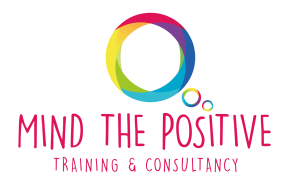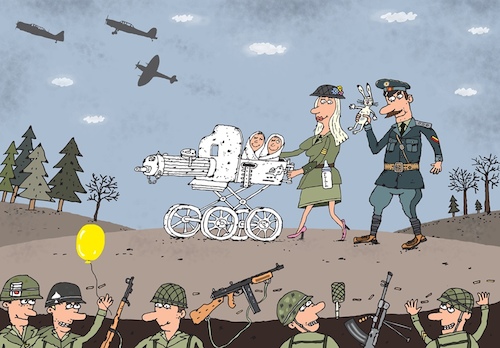Education Shop
When asked “Who are you?”, everyone has a list of social identities. Although they are in different order, they are similar in terms of their content. When I am asked, I would say I am a citizen of the world, a woman, a wife, a mother, a child. But the most dominant identity with which I define myself and which makes me who I am is being an “educator”, which is accompanied by roles such as mentor, coach, counselor, guide, listener, mirror and “being there” for the other person. Whatever it is, I have a principled and idealistic side that I do not accept what is not in my heart and mind. That’s why, while others in the sector progressed and rose, I chose and practiced what felt right to me, at the expense of staying in my place. Because I weigh, I look at the relationship between the effort I put in and the result I create; I look for the balance between the impact or added value I create for the good of myself and the whole. If one outweighs the other, the balance is out of balance. Because only when both sides of the shroud are in balance, both sides will find their rightful place and reach satisfaction. Hence, the story of this article is education!
As an educator, my aim is to teach what I know to individuals who are eager to learn; make them discover personalised learning methods;and to be a facilitator in identifying their needs and accessing information; to support them determine their life path by being aware of their own internal and external resources. In brief, my aim is to empower them in their life journey, to raise individuals who can sustain their lives and paths, and who can lead themselves and others. My biggest source of satisfaction is seeing the impact and added value I have created. When I meet my students years later, it is a unique happiness to know their success stories and that I am a part of it! Like forestry, planting hundreds of saplings, watering them regularly, and years later, turning the generations into a forest and being a part of it.
Easy to say! But it takes effort! Much has changed from the educator-student relations of the past to the mission and vision of educational institutions. Instead of “old wine in a new bottle” we witness “new wine is an old bottle.” The understanding of education has shifted from pedagogical and developmental foundations to business and managerial ambitions; the end and the means have been replaced, where both the buyer and the seller are satisfied. Like shops where every product has a buyer, “education shops” have emerged. For example, in Barcelona, some institutions that offer undergraduate and graduate programs in the status of Business School have launched a doctoral-level Doctor of Business Administration (DBA) program. And they did it very well. Not everyone is going to get a PhD. Unlike the academic and research-oriented PhD (Doctor of Philosophy) program, the DBA is a professional specialization program that focuses on theoretical knowledge in business and management and its adaptation to the business world. In fact, it is the deepest level of specialisation at the highest level of education. The participant is on his/her way to becoming the pioneer of his/her field and the “highest level” of seriousness and dedication is expected of him/her as he/she goes through this process. Specialization at the doctoral level is such an adventure.
As much as the commitment of the doctoral candidate, a “top level” structure is expected from the program director (the institute) to the lecturers and the method of education. In other words, the method of implementation is as important as the richness of the program offered. Ideally, classes at this level should be face-to-face; but when you consider the access of others who live in other lands, distance education is an incomparable boon; which comes in two types: synchronous (online) and asynchronous (offline). In one, learners join the learning group in a virtual classroom environment by connecting via Zoom, Google Meets or Microsoft Teams and participate interactively (synchronously), while in the other, they follow the video recording at any time anywhere (asynchronous). Asynchronous may be ideal in a certificate program, but cannot accommodate a program aimed at high-level specialisation. The validity, reliability, and impact of a PhD-level program designed with an asynchronous setup is questionable.
As you can see, it is a situation that made me think. I got an offer to be part of an asynchronous program. In a 16-week leadership DBA program, I would prepare the course content, videotape it in a professional studio and present it to the students through the institution’s portal. The temptation to design and build the course was great, even the idea of recording in the studio was appealing. Then, I questioned: ‘Participants will follow my lectures for 16 weeks, they will see my face and my voice, and I will not be able to interact with any of them or address their individual needs or questions one by one. Where is the exchange, where is the interaction, what kind of mutual learning and development method is this?” I thought about the result of my work and effort… All the sparkle went out in a puff. These people who will complete the program will carry the title of expert in their field, but they will be the product of content and fiction designed according to a uniform profile! They will build their knowledge and skills by being restricted within the framework offered by the program, they will not be able to include their individual experiences and stories in the development process…
It didn’t make sense! I said this doesn’t suit me and I rejected the offer! I do not criticize the system, nor do I object to it, but I refuse to be a part of it, because as an educator, I question educational practices and weigh the role I will play in this scenario. As ‘education is the beginning of everything”, I choose to be a part of it by doing it justice, contributing to its functioning and aiming for it to reach the recipient in the most appropriate, profound and beneficial way. Because, when I look at today’s educational outcomes, university graduates cannot find jobs, and on the other hand, there is education inflation with diploma degrees that are easier to access and obtain. Unfortunately, it is possible today to acquire status and titles as if buying them from a store, without putting in enough effort and sweat. Nevertheless, education, competence and skills are not easily acquired, so should be the title! Otherwise, Dunning-Kruger* syndrome inflation in society will be inevitable!
Love from Barcelona.
23rd February 2022
*Dunning-Kruger Syndrome: The Dunning-Kruger Syndrome was theorized and researched by two US psychiatrists, David Dunning and Justin Kruger, about 10 years ago.
Based on the theory of ‘ignorance, unlike true knowledge, increases one’s self-confidence’, the following findings were reached as a result of various applications in the physiological and mental fields:
Unqualified people do not realize to what extent they are unqualified.
Unqualified people tend to overestimate their qualities.
Unqualified people are also incapable of seeing and understanding the qualities of truly qualified people.
If their qualities are enhanced by a certain amount of education, these same unqualified people begin to realize their lack of qualities.
You can get further information at https://en.wikipedia.org/wiki/Dunning–Kruger_effect



Leave a Reply
Want to join the discussion?Feel free to contribute!